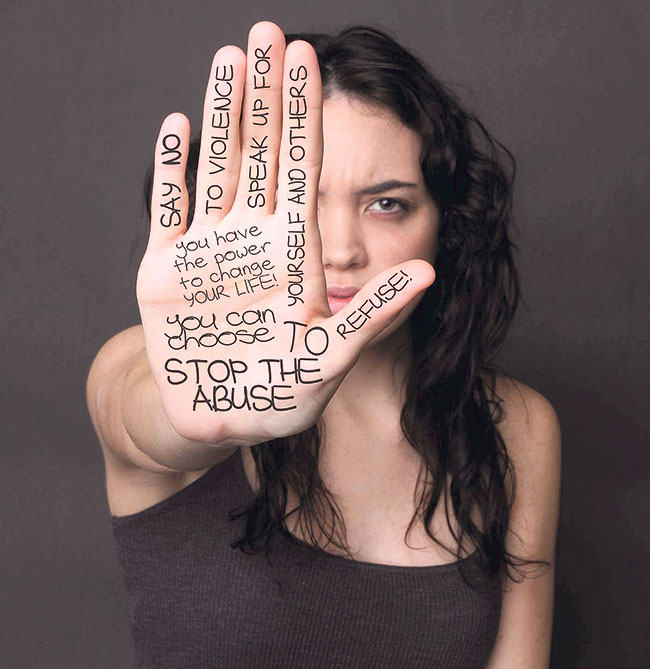KATHMANDU, Nov 30: We love doing things with a little – sometimes a lot – of fanfare even though we may not have a lot to shout about. No, I’m not talking about our dear PM Oli’s face being plastered all over the front pages of newspapers on Tuesday and all around the city in what was a monumental waste of taxpayer’s money. You know a government has reached its low point when this is the sort of thing they have to resort to in order to make their ‘presence’ felt.
Anyway, what I was really talking about was the awareness rally organized by the Ministry of Women, Children and Senior Citizens, and National Women Commission at Bhrikutimandap. The rally was held to mark November 25 as the International Day for the Elimination of Violence against Women and also the beginning of the international campaign – 16 days of activism against Gender-Based Violence (GBV) culminating on December 10 with the Human Rights Day.

It’s no secret that we are good at paying lip service to almost every issue under the sun but not really adept at or even inclined to actually tackle them. When you contrast that rally alluded to above with the heartbreaking video of Nirmala Pant’s father slowly losing his senses, you get a sense of our collective apathy to GBV issues. Apathy is the word I would use to describe our societal and administrative attitude towards GBV issues – not incompetence, because that would imply we tried and failed. It’s not only about a specific case that generated headlines but the general regression we seem to be heading towards in terms of addressing these issues.
AIGs Gurung and Dhakal conferred rank insignia

I don’t know if it’s just me but, for those of us who follow the news, there is a steady stream of news from not only far flung corners of the country but even from urban areas related to gender based violence in the form of rapes and beatings. It’s hard to tell if these incidents that make it to our newspapers and our social media newsfeeds are actually a result of victims coming forward to report these cases more than before.
Often one of the critical obstacles to tackling gender based violence is actually reporting it partly due to the stigma attached with these incidents and partly due to a lack of faith in the police and justice system. Once the victims have got through the hurdle of actually reporting the incident, it’s often a case of going through lengthy administrative processes that require them to relive their humiliation and ‘prove’ the wrongdoing by the perpetrator.
Our system is not really set up to make things easier for the victims but the main hurdle lies in our collective, perhaps community, attitudes towards this type of violence. Our social and cultural conditioning means that a lot of us are brought up with attitudes that tend to trivialize violence against women at best and excuse or justify it at worst, especially family related violence. Until these societal attitudes are tackled, it hard to see how the tide of violence can be stemmed simply with legislative and/or punitive measures.
World of work
The global theme for the 16-day activism is ‘End Gender-Based Violence in the World of Work’. Over the years, a point of focus for successive governments, and quite rightly so, has been the economic empowerment of women to bring about some level of gender equality. It has been achieved primarily through legislations that secure various quotas in jobs, tax breaks in registration of property, tax rebates for single working women and other sporadic incentives. But all of these economic empowerment initiatives would be rendered meaningless if the right environment to work and thrive does not exist and if different forms of harassment and intimidation are allowed to go unchecked.
The susceptibility to workplace related harassment and violence affects women universally whether it is agricultural workers, daily wage earners, bank staff or high flying executives in low income, developing or developed countries. In Nepal, you will often find a lot of companies have out of context ‘copied and pasted’ policies to deal with issues of this kind or, in worst case scenarios, won’t even bother having any policies and systems in place.
In our deeply patriarchal society and a system in which power is not equally distributed between men and women in all spheres of public and private life, the real measure of women’s empowerment would not simply be economic upliftment only but also an all-round urgency to tackle the wide ranging gender related problems they face.
What we normally do is come up with a five or seven point declaration that is put down in black and white and promptly forgotten about and, as we know, these declarations are pretty useless unless actioned and acted upon. It’s only when our attitudes change and when GBV victims feel confident to report and seek help and be confident enough that justice will be served that we will truly have empowered women.


































